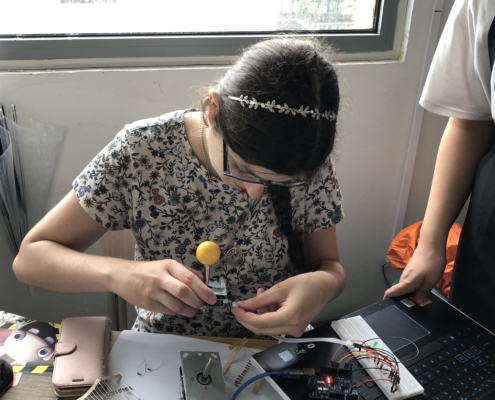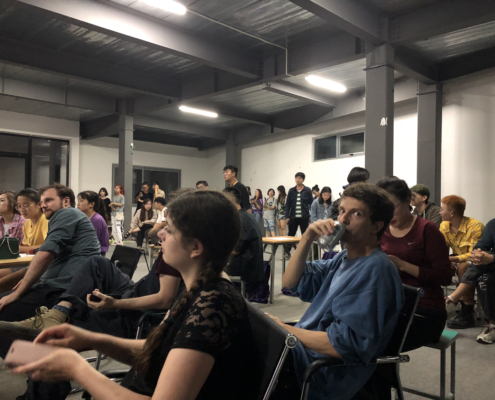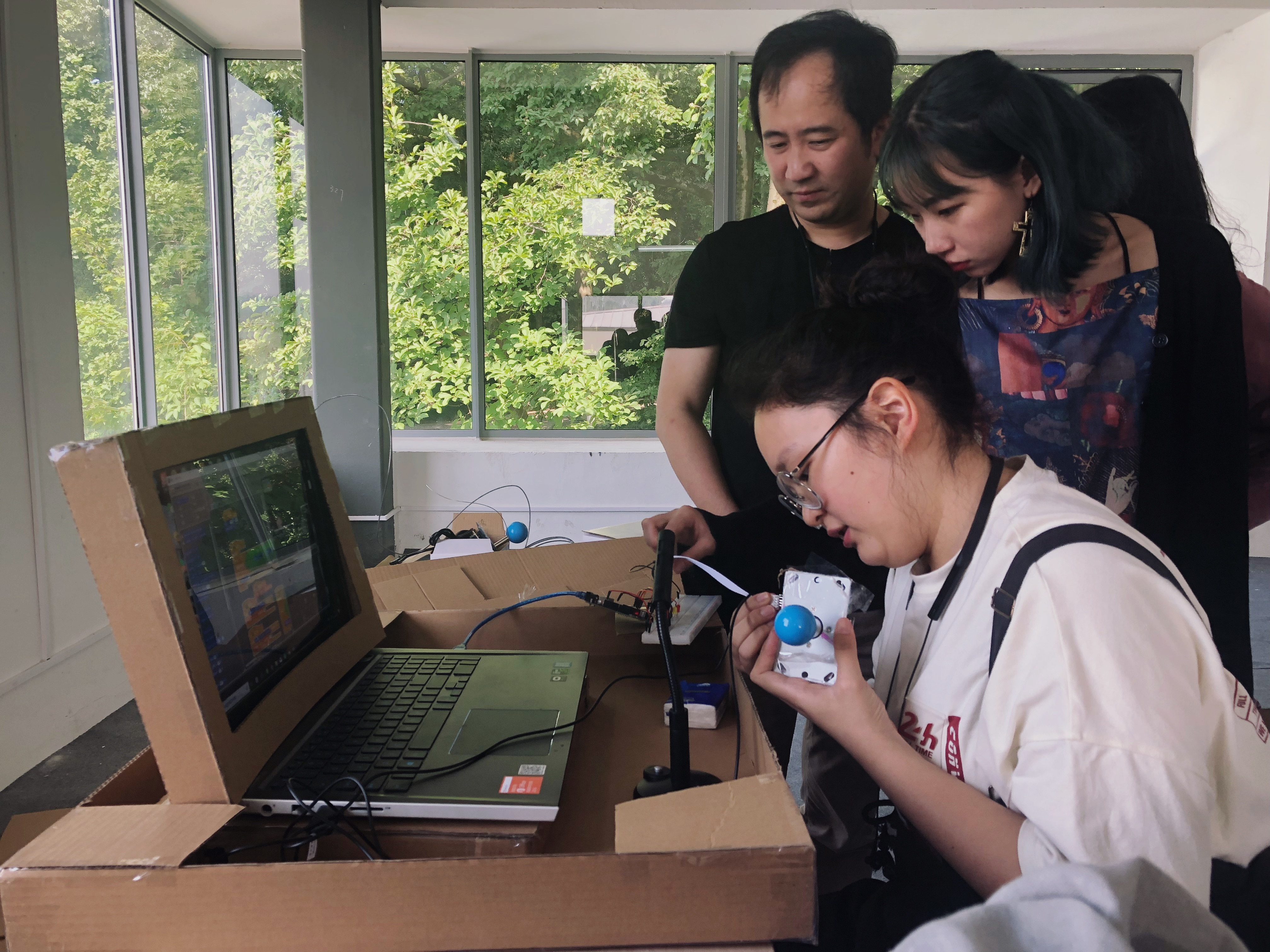Playful Machines : A Game Workshop in China
I had the chance to be invited to China Academy of Art in Hangzhou to participate in a cultural exchange with the school. “YOUNG to young” is a program that reunites foreign teachers from different countries and local teachers from China. Together, we paired up and gave different courses during one month to classes of first year students on the theme of “Playshop : A shop for games”.
Playful Machines is the name of the workshop I gave and during which I teach students to build alternative video game controllers with Arduino sensors, arcade material and visual coding.
YOUNG to young : “Playshop”
I had the chance to be invited to the China Academy of Art in Hangzhou to participate in a cultural exchange with the school. “YOUNG to young” is a new program that reunites 15 foreign teachers from different countries and 15 local teachers from China. Together, we paired up and gave different courses during one month to classes of first year students on the theme of “Playshop : A shop for games”. All tutors were coming from very different backgrounds, like photography, architecture, media arts, etc… leading to very different workshops as well.
The workshop’s outcomes
With my co-teacher, “Sean” Huang, I gave a workshop called “Playful Machines” to teach students to build alternative video game controllers : video games that can be played with original tangible interfaces. Video game is a medium that can be used to create immersive and impactful experiences for the players. Those experiences can be amplified by building unusual, physical and original interfaces which can redefine the way we usually play video games.
The students were asked to team up and build new controllers by using electronics like arduino and arcade hardware. The outcome of the workshops is a public exhibition of all student’s production in each class. Therefore, the exhibition of this specific workshop takes the form of an arcade room in which visitors can play every playful machine made by the students and learn about their design thinking.
The workshop’s direction
The main goal of the course is to learn the process of making games and interactive experiences with a different approach of what is usually used in the industry. By creating analog interfaces, the students have to question the way games are physically played. Students have also been documenting the concept of each project by writing a short game design document during the creation process. This helped them explain their ideas inside and outside of their team.
The course consisted of lectures in which they learnt about game design principles and studied video games and game creators which are relevant to the theme. Students have acquired technical skills like electronics or visual scripting, while the course has been focused on designing meaningful game mechanics. Then they applied this learning into their projects.
Designing frugal prototypes…
One exercise I asked the students to do, is to build frugal prototypes of their games : prototypes made only of drawing and crafting material, with the purpose to demonstrate and test their gameplay.
This exercise was display to help them identify the different issues they could encounter before finishing their project by faking the play of the game flow. After building those prototypes, each team made a video of it to show the all class.
…to functional prototypes
After these paper prototypes were finished, students could concentrate on improving the final version of their project. At the end of the course, they had to present a simplified version of a game concept document so they could have a written and schematic version of their projects. This being done, it was time to finalize the games…


























































